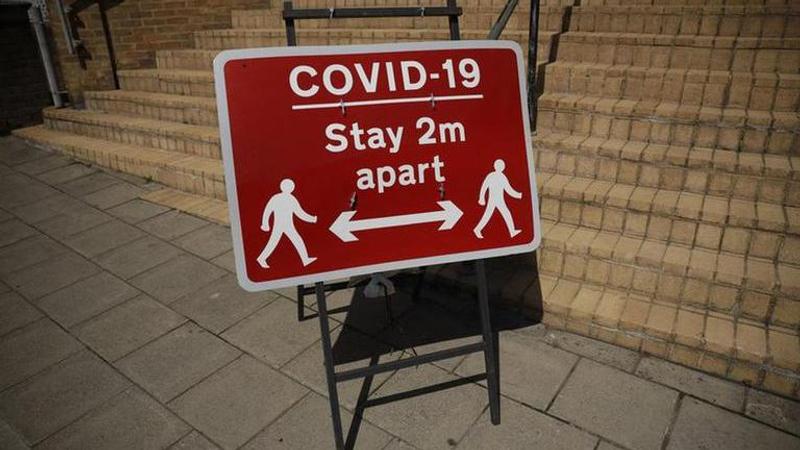Published 18:57 IST, June 23rd 2020
Pubs, restaurants in England to reopen as virus toll eases
Millions of people in Britain will be able to go to the pub, visit a movie theater, get a haircut or attend a religious service starting July 4, in a major loosening of coronavirus lockdown restrictions. But they will have to wait a bit longer to see a concert, get a tattoo or go to the gym.

Millions of people in Britain will be able to go to the pub, visit a movie theater, get a haircut or attend a religious service starting July 4, in a major loosening of coronavirus lockdown restrictions. But they will have to wait a bit longer to see a concert, get a tattoo or go to the gym.
Prime Minister Boris Johnson announced Tuesday that a swath of businesses can reopen next month, including restaurants, bars, hotels, hairdressers, cinemas and museums. Other businesses, including gyms, pools, spas and tattoo parlors have to stay shut for now.
The government's decision will help thaw a British economy that has been in deep freeze for three months under a nationwide lockdown imposed to slow the spread of the virus.
Johnson told lawmakers that “our long national hibernation” was coming to an end.
“We cannot lift all the restrictions at once, so we have to make difficult judgments,” Johnson said. “The more we open up, the more vigilant we will have to be.”
Starting July 4, places of worship will be allowed to hold services, though singing by choirs and congregations remains banned since it could transmit the virus. For the same reason, live music and theater performances are still off-limits.
The government also announced that social-distancing rules will be relaxed. From July 4, individuals will be advised to stay at least 1 meter (3 feet) apart from others, rather than 2 meters -- as long as they take other measures to reduce transmission of the virus, such as wearing a mask in enclosed spaces.
Pubs and restaurants have been lobbying the government to reduce the distance rule, saying many will go under if customers have to stay 2 meters apart. One meter is the minimum distance recommended by the World Health Organization.
The social distancing requirement is also a concern for educators hoping to safely open British schools in the fall.
Britain has Europe’s highest death toll from the virus, with almost 42,700 confirmed dead. That is also the third-highest death toll in the world after the United States and Brazil, which both have much larger populations.
The government said businesses will be getting detailed advice on how to become “COVID-secure.” And it said people should only meet indoors with members of one other household at a time.
Johnson said that “as we have seen in other countries, there will be flareups" of the disease that could lead to restrictions being reimposed.
The measures announced by Johnson apply only in England. Other parts of the U.K. —Scotland, Wales and Northern Ireland — are all following slightly different lockdown plans.
Some scientists are worried that the government is reopening the economy too fast and that a track-and-trace system meant to quickly stamp out any outbreaks is not fully functional.
The number of daily deaths and new infections in the U.K. has fallen significantly from its April peak, but the country is still confirming 1,000 or more new COVID-19 cases a day.
“This is far too premature,” said David King, a former chief scientific adviser to the government. “To come out of (lockdown) too early is extremely risky.”
Figures released Tuesday by the Office for National Statistics show both the scale of the outbreak in Britain and its retreat. The office said there were 1,114 death involving the coronavirus in England and Wales in the week to June 12, the lowest number for nine weeks. The total number of weekly deaths from all causes also fell but remains 5.9% higher than the five-year average.
The total number of excess deaths in the U.K. since the outbreak began stands at more than 65,000. Excess deaths are are widely considered to be the best gauge of the virus’ impact as they provide a clear guide over historical periods and include all-cause mortality.
WHO spokeswoman Margaret Harris also urged the British government to be cautious.
“The U.K. has brought a very difficult outbreak right down,” she told the BBC. “Very good news in the last couple of days about the limitation in cases, and far, far fewer people dying. So now is the moment to celebrate that by being super careful.”
Updated 18:57 IST, June 23rd 2020




